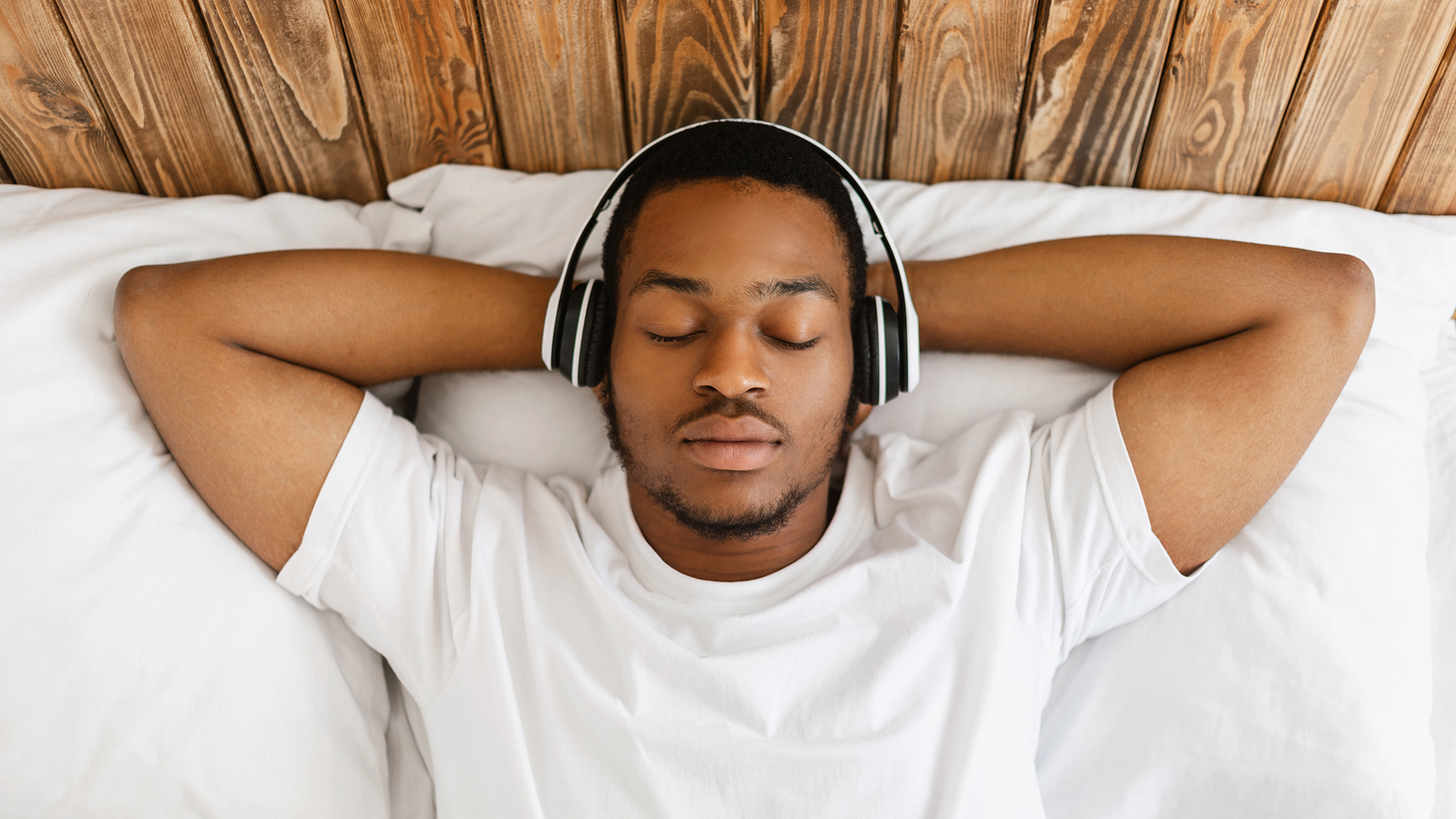Can't put your phone down before bed? Spotify might be your surprising sleep savior
Experts recommend setting nightly limits with music timers

Sign up for breaking news, reviews, opinion, top tech deals, and more.
You are now subscribed
Your newsletter sign-up was successful
I promise myself just one more minute on my phone before sleep, yet it somehow always turns into half an hour of doomscrolling and dragging myself to bed. Even when I'm ready to collapse onto my best mattress, these imaginary timers can't compel me to put the phone down. Might listening to music be a more effective approach to setting limits in my bedtime routine?
Music timers were introduced to me by experts at the Sleep Charity's Sleep Conference, and I found the idea immediately intriguing. It's simple: instead of trying to just put down your device, pick up your phone and head to YouTube, Spotify, or the music service of your choice. Pick a song you find relaxing and press play. While the music is on you can keep using your phone, but when the track stops, it's time to step away from your devices. Let's explore why music timers work and how to use them.
Why use a music timer before bed?
I’m not going to rehash the benefits of putting down technology in the evening – we all know it’s best to avoid blue light and abandon work when you’re in bed. But there’s a big difference between knowing and doing, and that's where music timers come in.

Often the best way to convince yourself to step away from bad habits is to give yourself a limit, so you don't have to go cold turkey. The problem is keeping to these limits. It's all too easy to find that the set time has passed and you've spent an entire evening on your phone.
Music timers are harder to ignore than clocks and countdowns because they engage a sense you're probably not using: hearing. Even when you're absorbed in your phone, your ears are tuned in to the music. When the sound stops, you'll notice. On the other hand, when you're scrolling through TikTok, do you ever really pay attention to the clock in the corner?
These timers can also give you a head-start on your wind-down. Pick relaxing and calming music and you can start letting go of stress and worry as you prepare to put down your phone. And if it's a piece of music you like, you might find you even look forward to the evening switch off.
How to use a music timer
Music timers are incredibly easy to use, which is good news for anyone struggling to quit the pre-bed doomscroll. Here's how to go about it:
Sign up for breaking news, reviews, opinion, top tech deals, and more.
1. Find your music
The music for your timer should be relaxing, but that doesn't mean you have to pick lullabies. Familiarity can be calming, so go for something you recognize. And it doesn't have to be a song – podcast, spoken word, and white noise for sleep can also work.

Length is as important as genre if you want to use music as a timer. It needs to be short enough to work as a countdown ("I'll stop scrolling at the end of the Era's Tour Playlist" isn’t much motivation), but long enough to give you time to finish what you're doing (if the music ends and your halfway through an email, you might not feel compelled to stop at all). Five to 15 minutes is a good range.
2. Pick a start time
Consider when you go to bed and when you plan on waking up. The 10-3-2-1-0 sleep method recommends putting down devices at least an hour before bed, so if your bedtime is 10pm, phones should go down at 9pm, and your timer should start a few minutes earlier.
3. Learn the cues
Over time, you should become familiar with the piece of music (depending on what you choose, you might be already). This will help your predict where you are in the song, making it easier to finish what you're doing before the clock runs out.
4. Switch it up
There are benefits to refreshing your music choice from time to time. When the music becomes too familiar, you might find it simply fades into the background. No longer an effective timer, a quick song change can get you back on track.

Ruth is TechRadar’s Sleep Writer. She’s here to help you find the perfect sleep setup for your budget and personal preferences. As well as keeping a keen eye on everything that’s going on in the world of mattresses, she regularly speaks to experts to help you learn how to improve your sleep habits, whether that’s by debunking sleep myths or explaining the science behind it all. Prior to joining the TechRadar team, she wrote features and product guides for new parents hoping to get a decent night's sleep, as well as writing for a variety of online spaces.